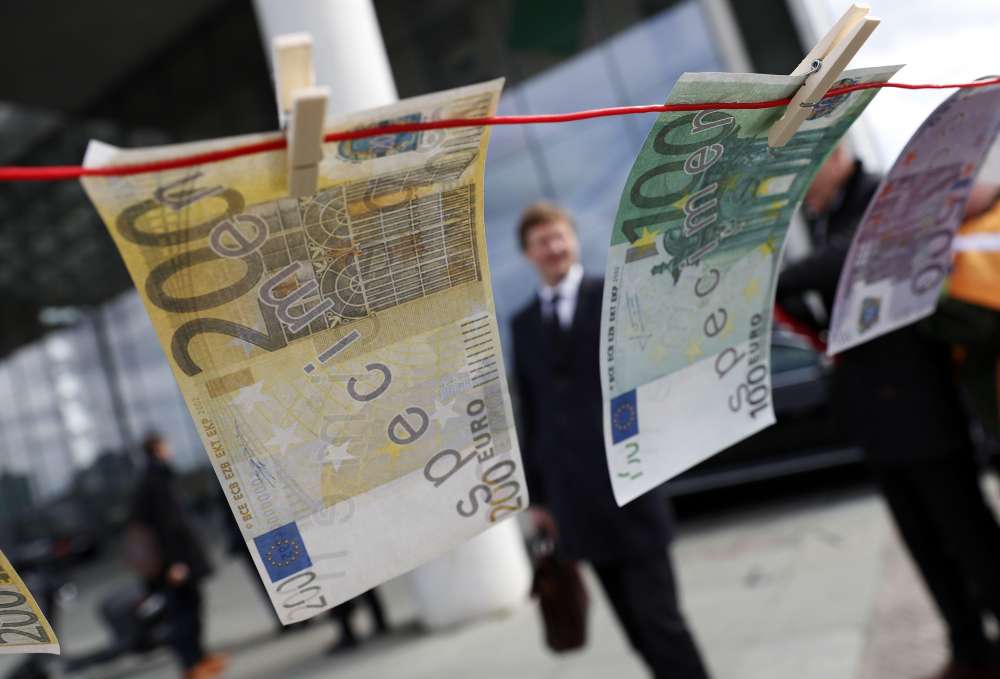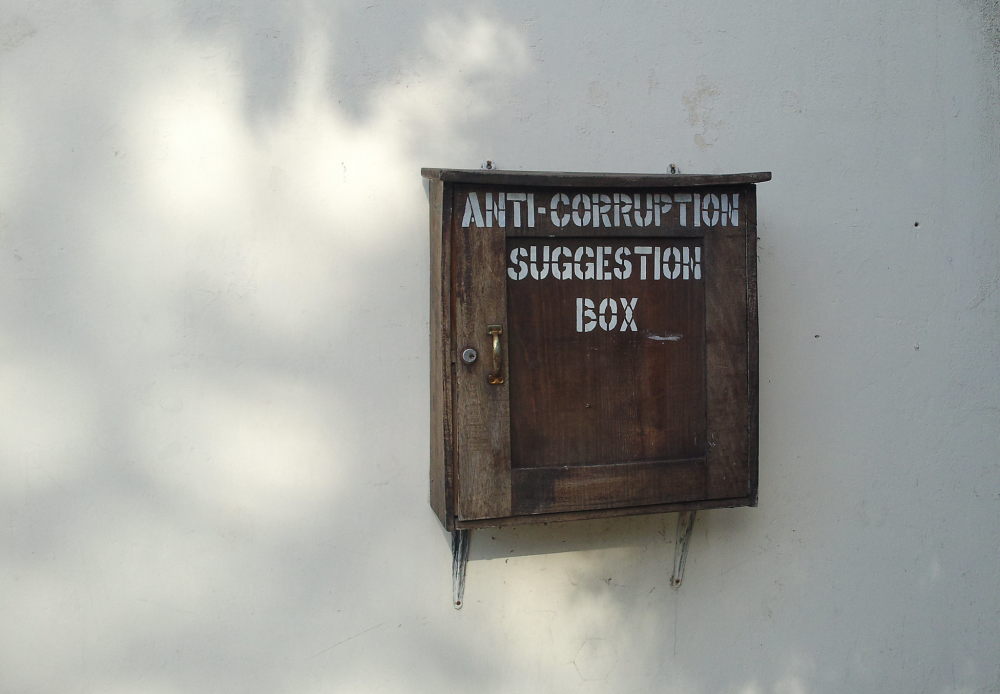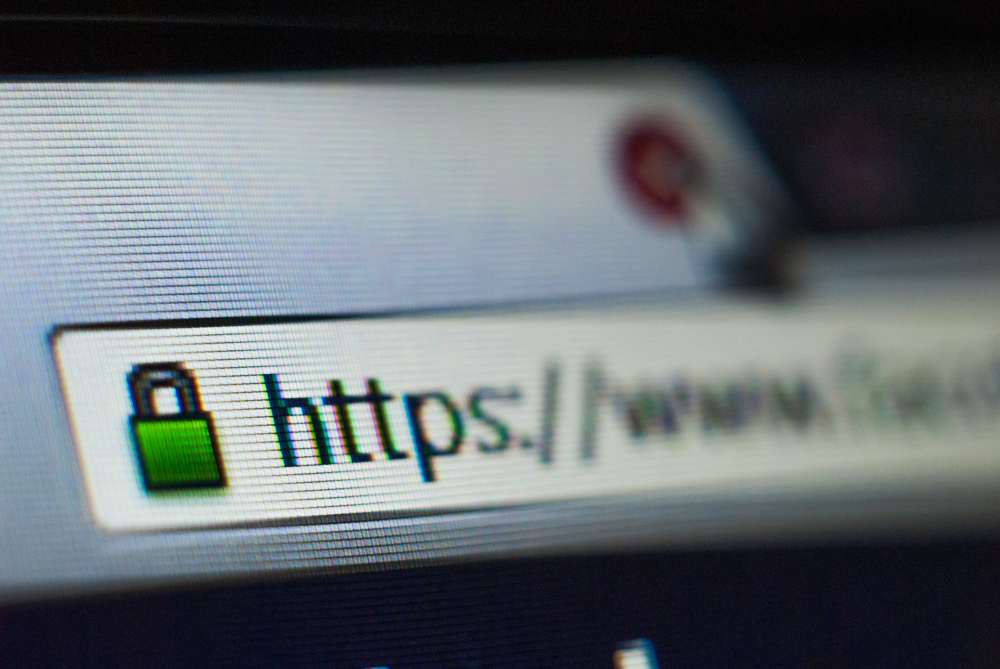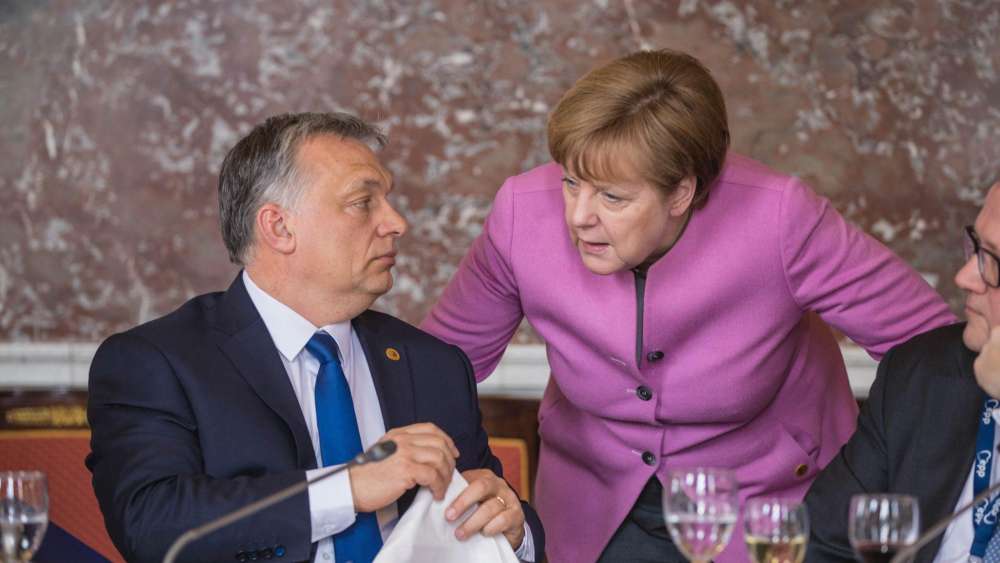To Counter Global Kleptocracy, Germany Must Turn the Tide on Dirty Money

(Felipe Trueba/EPA/Shutterstock)
For too long, Western countries have overlooked kleptocrats’ use of illicit finance as a means to undermine the sovereignty and functioning of democratic societies. But Germany in particular can no longer afford this complacency.
Kleptocracies pose an immediate threat to global democracy and national security. Russia’s brutal and unlawful invasion of Ukraine has made this abundantly clear. It even brought back the specter of nuclear Armageddon, a prospect most of us would have scoffed at just a year ago. While Western states were aware that Russia’s ruling elite was plundering the country’s resources for private gain, they long overlooked a more insidious menace posed by Russia and other kleptocracies on their own soil: the use of illicit finance to subvert democratic institutions and undermine their sovereignty.
Military, financial and humanitarian support to Ukraine as well as sanctions pressure on Russia should remain Germany and Europe’s short-term priorities – but the Kremlin’s actions also call for an overhaul of Germany’s long-term national and foreign policy priorities.
Over the past thirty years, “Wandel durch Handel” (or “change through trade”) has been Germany’s and many other Western democracies’ leitmotiv in dealing with authoritarian states. Western governments believed that deepening commercial ties with authoritarian states would usher in political and social change. But in light of the unprecedented democratic backsliding and rise of populist parties all over the world, we must recognize that this approach has failed. Instead of promoting democratic values in these countries, Germany’s focus on economic ties has in fact contributed to cementing the grip that kleptocratic regimes have on power.
» Instead of promoting democratic values, Germany’s focus on economic ties has in fact contributed to cementing the grip that kleptocratic regimes have on power. «
Even more worryingly, the kleptocratic elites of Russia or China, for example, have enmeshed their illicit wealth with the global financial system. Not only have they profited from the West’s complacency with regards to their countries’ systemic corruption, they have also exploited Western countries’ openness to foreign investment and financial secrecy to launder the proceeds of their corruption and hide their assets.
Even though it may appear that recipient countries, including Western democracies, profit from the influx of dirty money, authoritarian states can use laundered funds to conduct a range of hostile activities, such as interfering in another country’s political system by co-opting its elite or funding armed operations and propaganda.
Key Points:
- To counter global kleptocracy and strengthen democratic resilience, Western states must deprive authoritarian regimes of their economic lifeline. As the world’s fourth largest economy, Germany has a special responsibility to act.
- Germany should follow the example of the United States and elevate the fight against money laundering and illicit finance to a national security priority.
- Germany should: improve its anti-money-laundering architecture; ban anonymous companies and make beneficial ownership structures more transparent; create an asset register; better regulate professional enablers in non-financial sectors; and improve the enforcement of its anticorruption and money laundering regulations.
The Covert Influence of Kleptocrats
Authoritarian states heavily rely on shell companies and offshore accounts to conceal their economic activities and dissimulate the origin of the funds they invest. The Azerbaijani Laundromat offers a striking example of this. Azerbaijan’s ruling elite used this complex 2.5‑billion-euro financial scheme and slush fund to launder money, buy luxury goods and make secret payments to European politicians. They exploited the West’s legal loopholes by registering four shell companies in the UK, all using bank accounts at the Estonian branch of Danske Bank. The origin of the money that was laundered still remains murky today, even though at least half of it seems to have come from an account held by a shell company with ties to the family of Azerbaijan’s President Ilham Aliyev.
Among the recipients of funds funneled through the Azerbaijani Laundromat were prominent German members of the Parliamentary Assembly of the Council of Europe (PACE). Eduard Lintner from the Christian Social Union (CSU), the Bavarian sister party of Germany’s conservative Christian Democratic Union (CDU), is suspected to have received about 4 million euros from Azerbaijan. Karin Strenz, another CDU party member, received about 22,000 euros. By co-opting leading members of PACE, Azerbaijan ultimately managed to strike down a damning report on human rights violations and electoral fraud in the country. Recent revelations also show that the extent of Azerbaijan’s influence in Germany’s main conservative party might run even deeper than previously known.
Corruption scandals and covert financing operations by hostile states erode public trust in politicians and democracy. The latest corruption scandal rocking the European establishment is a powerful reminder of this and involves Qatar using corruption as a means to influence the European Parliament, whereby it reportedly co-opted the parliament’s Vice President Eva Kaili.
However, illicit finance activities are also conducted by states considered to be strategic partners by Western states. Turkey, an authoritarian state that is also part of NATO, offers a compelling example. President Recep Tayyip Erdoğan’s AKP party seems to have financially supported criminal organizations, such as the Turkish-nationalist Osmanen Germania gang, to intimidate political opponents and critics of the regime living in Germany. Turkey has also skillfully exploited opaque corporate structures to co-opt Western politicians into conducting smear campaigns against the regime’s opposition. Michael Flynn, ex-US President Donald Trump’s former national security advisor, received 600,000 US dollars via a Dutch company whose beneficial owners are suspected to be Turkish to write an op-ed in The Hill, in which he compared the prominent Turkish opposition figure Fethullah Gülen to Osama Bin Laden.
» Illicit finance activities are also conducted by states considered to be strategic partners by Western states. «
Proxies and Professional Enablers
Another vehicle used by authoritarian states to conduct illicit finance activities are proxies, because of the plausible deniability they provide. Russian oligarchs in particular are playing a key role in the Kremlin’s attempts to influence politics in Western countries. The United Kingdom has been a target of choice for Russian oligarchs, as a report by the British Intelligence and Security Committee revealed. The UK’s investor visa scheme, investment opportunities, lax regulations, and strong rule of law made it a safe haven for illicit funds. Oligarchs used this money to buy influence across the British establishment, including via generous political donations. The report also acknowledged that the links between the Russian elite and the United Kingdom cannot be entirely untangled. Since February 24, 2022, the United Kingdom has stepped up its efforts to tackle transnational corruption and illicit finance.
As the largest economy in the European Union and the home of its most important financial sector, Germany has similar vulnerabilities to illicit finance as the United Kingdom. It also is awash with dirty money: the volume of money laundering in Germany alone is estimated to amount to over 100 billion euros per year, and the total volume of illicit financial flows exceeds that probably by far.
Proxies can also include private business surrogates, who again have allowed Russia to interfere directly in the political processes of other countries. France’s far-right National Rally party, for instance, received a 9.4‑million-euro loan from a private Russian bank with ties to the Kremlin. These examples represent only the tip of the iceberg of Russia’s illicit finance operations: the United States State Department recently disclosed that Russia covertly spent 300 million dollars since 2014 to influence politics in 24 countries – and the dark figure could be even higher.
Kleptocrats and criminals could not move, launder and conceal their illicit wealth without the help of professional enablers from non-financial sectors. Lawyers, accountants, estate agents, and public relations professionals all facilitate global illicit financial flows and their integration in the formal economy. By doing so, they help, wittingly or unwittingly, to extend the influence of authoritarian states and cause major economic damage. Money laundering in the real estate sector, for instance, drives up prices, reduces housing affordability and prices people with legal funding sources out of the market, as is the case in Germany and particularly in Berlin.
» Kleptocrats and criminals could not move, launder and conceal their illicit wealth without the help of professional enablers from non-financial sectors. «
Root Out Dirty Money
The sinews of kleptocracy and organized crime are dirty money. Both depend on individuals’ ability to launder and invest the proceeds of corruption in the global financial market to sustain and grow their power and wealth. To effectively counter global kleptocracy and strengthen democratic resilience, Western countries must deprive authoritarian regimes of their economic lifeline. What does that mean for Germany’s National Security Strategy?
It is crucial that Germany follow the example of the United States and elevates the fight against money laundering and illicit finance to a national security priority. The difficulties encountered by Germany in implementing the sanctions against Russian oligarchs with ties to the Kremlin, especially efforts to identify their assets and seize them, highlight the need for rapid and profound improvements to the country’s anti-money-laundering architecture. The latest report by the Financial Action Task Force (FATF) confirms this and Germany should strive to fully implement the FATF recommendations.
Germany must step up efforts to ban anonymous companies and make beneficial ownership structures more transparent. At present, information on beneficial owners (in its beneficial ownership register) is not verified, except when a discrepancy is reported; and the threshold for disclosing beneficial owners is too high. In consequence, beneficial ownership data is not always accurate or up-to-date. The latest ruling by the Court of Justice of the European Union has ended public access to beneficial ownership registries across the EU even though several examples, like the OpenLux case, have clearly shown the benefits of such public access in the fight against money laundering. Investigative journalists, civil society organizations and academia should be granted access again promptly and unbureaucratically, in the interest of national security. Germany also still lacks a centralized and digitized real estate register, although real estate is a preferred vehicle for money laundering.
Further, the German government should work to create an asset register, which should encompass all types of assets known to be misused for financial crime purposes, including luxury cars, yachts, jets, artworks and jewelry, whenever these exceed certain price thresholds. It could also serve as a starting point for an asset register at the EU level.
Regulate and Supervise Enablers
There is also a need for Germany to better regulate and supervise the professional enablers from non-financial sectors. The country needs a central supervisory body, akin to the BaFin in the financial sector, whose role it would be to coordinate the work of the more than 300 supervisors in the non-financial sector within and across the German states. With proper regulations and guidance about their obligations, particularly regarding the identification and reporting of suspicious activity, the professional enablers from non-financial sectors can become essential gatekeepers of the financial system against illicit financial flows.
Finally, Germany must improve the enforcement of its anticorruption and money laundering regulations, which requires that its Financial Intelligence Unit (FIU) and law enforcement authorities be adequately resourced. On the legislative side, Germany could announce the introduction of a law like the United States’ Global Magnitsky Act or the United Kingdom’s Unexplained Wealth Orders. This would provide German law enforcement agencies with the necessary legal powers to effectively implement sanctions against and seize the assets of the elite of authoritarian countries involved in corruption or human rights abuses. Enhancing cooperation with law enforcement agencies across the EU and with the US is also essential, because illicit financial flows are transnational by nature.
To counter undue influence by authoritarian states and strengthen democratic resilience, Western democracies must focus on restoring the integrity of the global financial system and turn the tide on dirty money. As the world’s fourth largest economy, Germany has a special responsibility to act. It is time to transform the country – from a money launderer’s paradise to a kleptocrat’s nightmare.
Mickaël Roumegoux Rouvelle
Project Manager, Transparency International Germany
Keep on reading

Strategic Corruption Is a Security Threat
Authoritarian states are using weaponized corruption to further their geopolitical objectives abroad. To tackle the issue, Germany needs a holistic strategy to effectively close the loopholes that kleptocrats exploit.

Germany’s Cybersecurity Posture? Let’s Focus on Resilience
Adopting a resilience approach not only means making Germany more secure – it also serves to strengthen global peace and security. By investing in resilience at home, Berlin can act as a norm-setter on the international stage.

Demokratie muss zu einem Kerninteresse deutscher Außenpolitik werden
Das Thema Demokratie zieht sich wie ein roter Faden durch die großen Herausforderungen für deutsche Außenpolitik. Die Strukturen des Auswärtigen Amtes spiegeln das nicht wider. Höchste Zeit, das zu ändern.